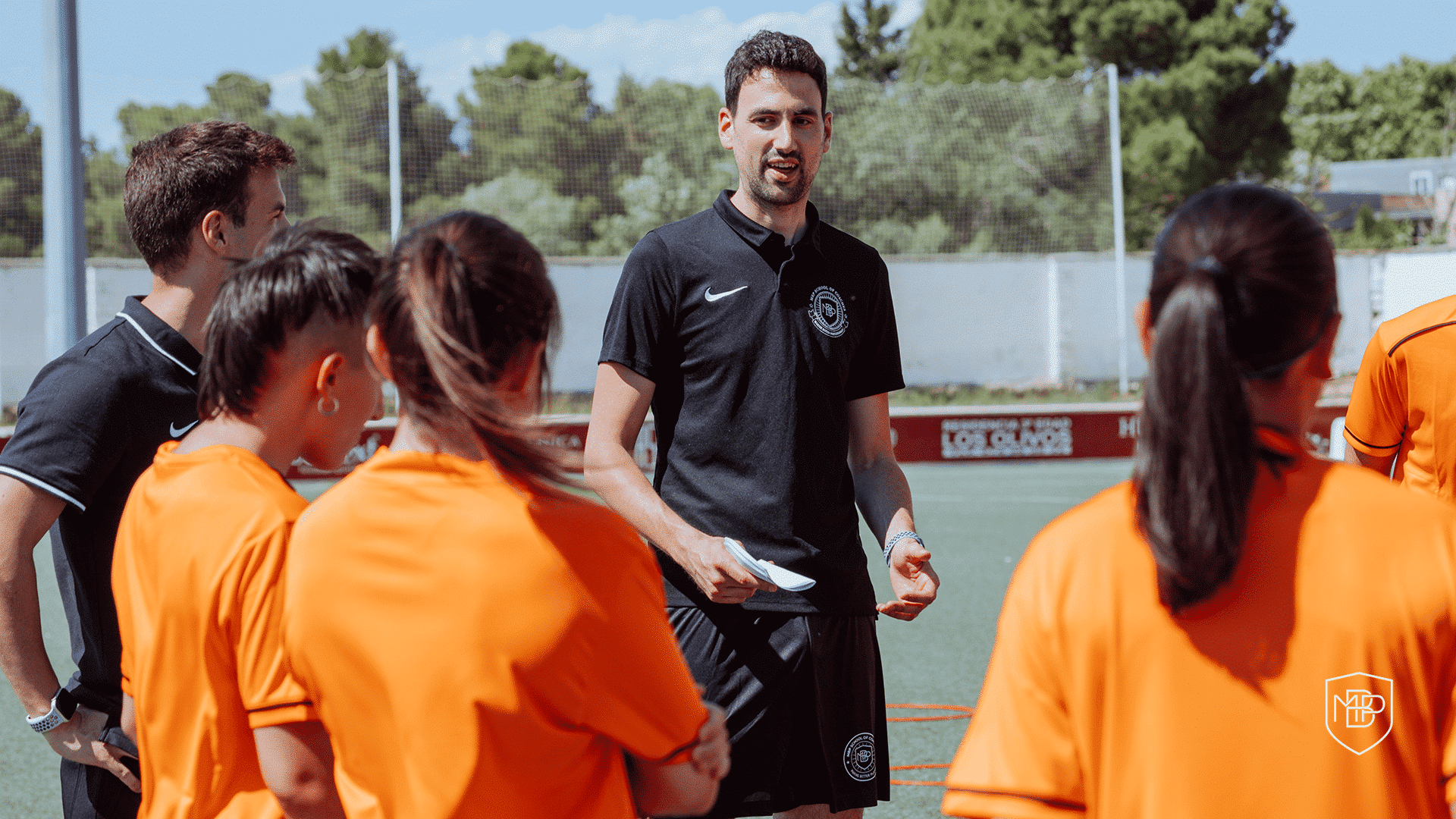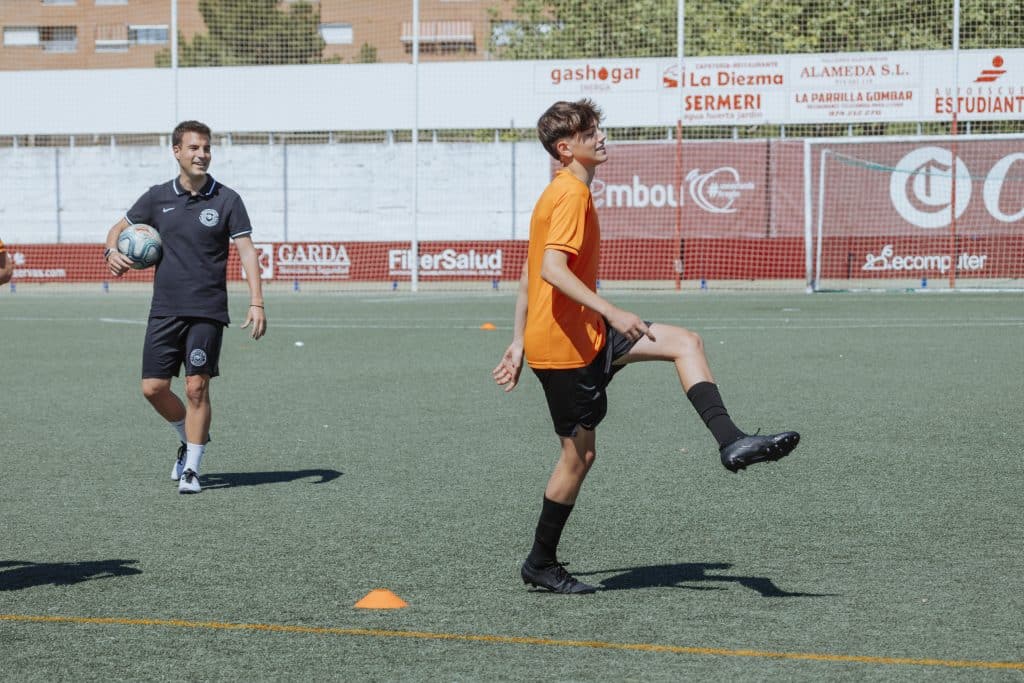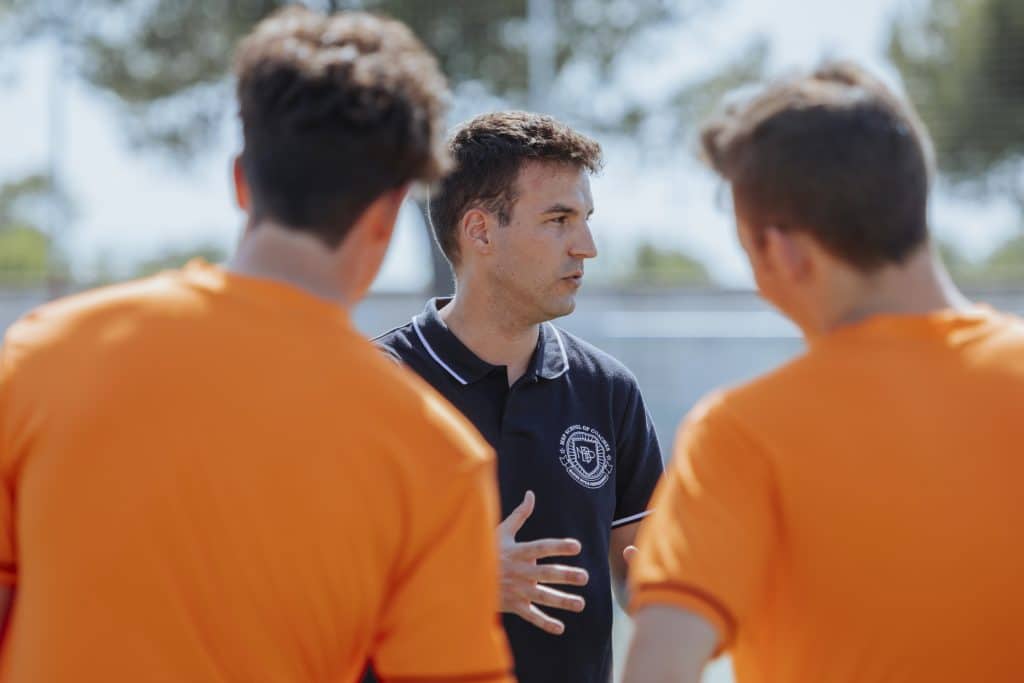Among the large number of children who start playing football from an early age, many of them drop out of the sport by their teens. Perhaps one of the main reasons for this is that many coaches place more importance on winning and performance than on learning and enjoyment of the game.
If a player is taught that winning is the most important thing, when they are not successful, they feel frustrated, and, as a consequence, when there is some conflict with other activities, leisure or interpersonal relationships, they may end up quitting football.
Therefore, coaches at the grassroots level must know that they are the role model for many others. For this reason, it is necessary for clubs to carry out a pedagogical intervention with them. Like any employee, a coach needs guidance about his task and the responsibility that comes with the position.
One of the areas in which it is most necessary to work with the coach in is sports psychology, both during competition and training. Knowing how to choose to behave at each moment will favour the learning of players and is a key element in the teaching-learning process.
In addition, it is evident that children in youth development do not have the same characteristics as adult players, which is why they do not learn in the same way.
Therefore, should they be trained in the same way, and should the coach’s profile be the same as that of the adults?
Obviously not, since it is very important that, as coaches in the period of adaptation / initiation, we have the awareness and ability to adopt a role that suits the learning and training needs of young players at that time of their development.
It is for this reason that one of the main tasks of coaching youngsters who are starting out in a sport is education since sport is not educational in itself. Therefore, it will be the people who energize the scenario who will be in charge of providing the educational value.
Taking this into account, the coach will have to show certain attitudes and aptitudes.
The performance of educators-sports coaches in football has a fundamental role in our society, and even more so when dealing with children who are highly influenced by sporting idols, by family, teachers and, of course, by coaches, who bring together a touch of all of the above and therefore make them an enormous potential for influence.
In this sense, there are a series of actions, behaviours and attitudes that should be part of the coach’s profile, such as: ability to design a great variety of didactic strategies, establish realistic expectations in each learning process, give objective and clear information, positive attitude, correction of errors focused in a positive way, etc.
Likewise, a good coach should not only show a positive attitude. The aptitudinal part referring to his own personality is also important, since, in addition to teaching skills to youngster, the way he will manage the group, how he will communicate, and the self-knowledge of the group will make a key difference.
However, it is not only those skills related to the training and content of the game that are essential and necessary.
Working in such a hyper-complex sport, the coach must have many other skills and abilities to train young players.
These are all pedagogical skills related to knowing when and how to use correction.
Understanding how and when to correct, will enhance the teaching-learning process in the player, achieving more effectively the attainment of the established objective. In addition, the coach must consider at all times, at what stage of the game the player and/or team is at, adapting the way they deliver the message.
In conclusion, the role of the coach in youth football will be vital in the teaching-learning process of the player. As we have mentioned during the article, the coach should have a series of characteristics that allow the player to develop to the maximum of their capabilities.








